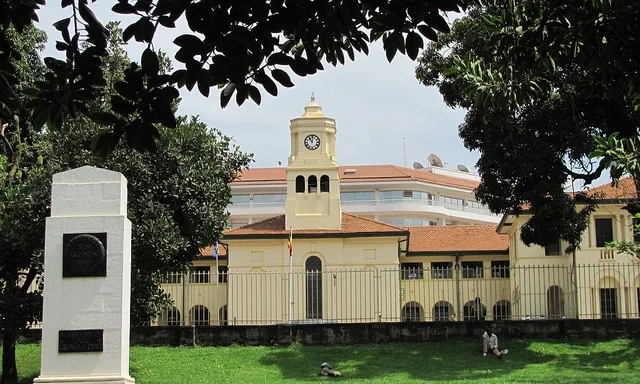Not surprising, foreign medical doctors make up a substantial proportion of the doctors workforce in some of the most affluent countries in the world. More than 34% of doctors practicing in New Zealand were from overseas in 2000. And according to a 2010 report in the Economie Internationale other developed countries have extremely high proportions of foreign doctors, including the United-Kingdom with 31%, the United-States with 26%, and Australia and Canada with more than 20%.
This is in part the result of initiatives like the 1994 U.S. legislation proposed to allow foreign doctors on student visas access to stay in the U.S. if they agreed to work in some of the poorest places in the United States. Since then, over 8,500 African doctors have left Africa and gained jobs at American hospitals that were in short supply.
A sneaky initiative. It looks great from the outside from its ability to give African medical students the chance to work in the U.S. for higher wages but it does nothing but continue to keep those living in “periphery” countries ever more dependent on “core” countries.
This is described by most scholars as the dependency theory — an economic model that became popular in the 1960s as a critic of the way the United States, along with many western countries, exploits those in the “periphery” for their own gain.
Poor countries provide resources, in the form of raw materials, cheap labor, and a market to those countries in the core. While wealthy countries in the core perpetuate their dependence in every way possible — through control of the media, economic politics, banks and finance insinuations like the International Monetary Fund (IMF) and the World Bank, educational initiatives, cultural exploitation, and even sporting events like the World Cup.
Indeed, this exploitation is clearly exemplified by the emigration policies facilitating the exodus of medical doctors from Africa over the past decade. Of the 12 African countries producing the most medical graduates, 8 have seen a 50% increase from 2002 - 2011 in all graduates appearing in the U.S. physician workforce. Cameroon, Sudan, and Ethiopia each had over a 100% increase since 2002.
These policies in place, that are sucking up some of Africa’s greatest doctors, are just further methods of perpetuating the poorest country’s dependence on the wealthiest.
It becomes clear then that while the United States benefits, Africa only appears to benefit. The U.S. gains excess doctors, while Africa looses the few it barely has.
While the United Sates grows its ratio of 2.45 doctors for every 1000 people, countries like Mozambique see a decrease in the already alarming rate of .04 doctors for every 1000 people.
Health professionals around the world agree that human resources is the most key component to solving problems in global health. But it is often one of the most neglected components, with much more emphasis focused on managing disease outbreaks and not the people actually preventing diseases.
Oliver Bakewel, of the International Migration Institute, agrees with this logic in writing that “development practice has commonly seen a reduction in migration as either an (implicit or explicit) aim of intervention or an indicator of a programme’s success" in an 2007 report.
However some scholars at the World Bank disagree with the notion that migration is inversely proportional to success in African development. A 2014 article in The Atlantic headlined "Why the brain drain can actually benefit African countries," outlined their findings that suggest "one additional migrant creates about 2,100 dollars a year in additional exports for his/her country of origin.”
However, this argument does not look closely enough at the brain drain for specifically medical doctors.
The brain drain intersects more than just the medial field — it cross cuts every highly skilled profession. But the effects of the brain drain on the status of health care in Africa is much more harmful than that of the brain drain of — for example — African professors. The average increase of 2,100 dollars in exports will do nothing to solve the critical and immediate lack of medical doctors in almost every African country.
The time is here more than ever for the international community to play a more proactive role in addressing the international medical brain drain. Affluent countries like the United States should be held accountable for exploiting Africa for its doctors, while international policies should be put in place to help African governments increase wages for health workers and retain their much needed doctors.
Contributing Editor: @AustinBryan
LinkedIn: Austin Drake Bryan



























